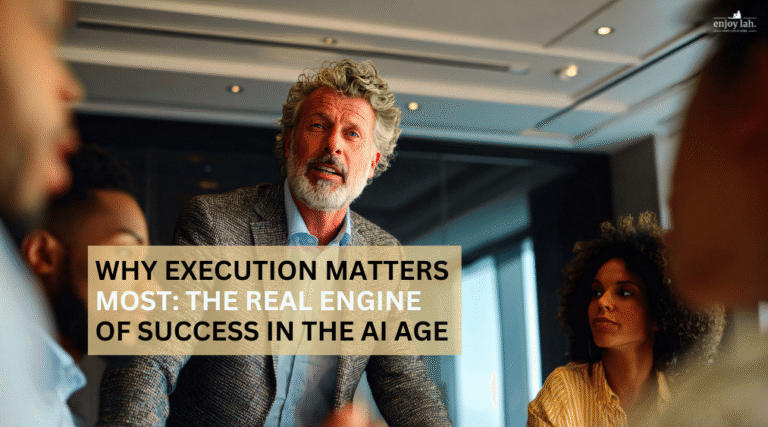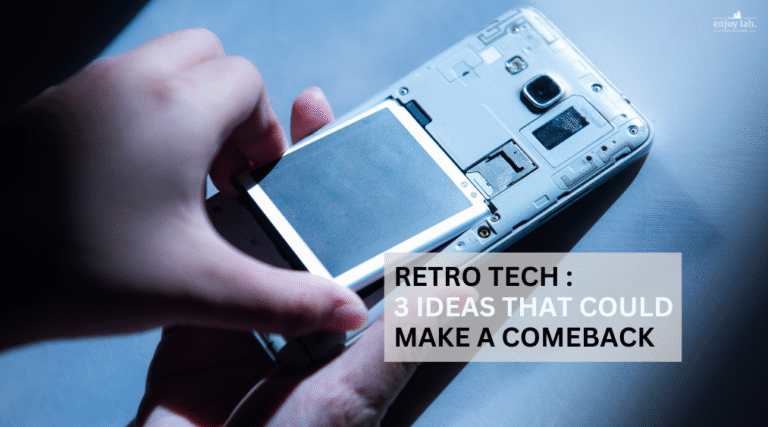In the AI age, the cost of doing nothing can be costly.
I do not believe people are just lazy. (Of course, at times, we can have our lazy moments because we need the rest.) Sometimes, we are just tired of chasing the technology curve constantly. However, this can be costly to us. That moment of despair can keep us from understanding the profound changes that are coming.
We should not underestimate how quickly AI can transform industries and affect the landscape. And without understanding this literacy of what AI can do, or can disrupt, it’s easy to assume “my job is safe,” when in fact, it may not be.
Why Literacy Matters – AI Complacency Risks
To begin with, AI disruption is often invisible. It works in the background like customer service chatbots, automated analysis, and generative design, replacing parts of roles without employees even noticing. What it’s able to do is to add business value at scale and at speed.
Furthermore, there is a perception gap. If you don’t understand how AI impacts workflows, you can’t see where your own value is at risk. This literacy gap is precisely where the cost of doing nothing in the AI age becomes dangerous, because by the time you notice it, the change has already happened.
To put it simply, our value contribution is now vulnerable to replacement by AI.
The Profound Impact of AI on Work & Life

We have to accept the fact that Businesses exist to turn value into profitable revenue. To compete for a bigger share, it’s natural that businesses will look to reinvent to deliver better value in order to drive growth.
Good read on McKinsey’s Report about AI’s transformative impact on businesses
Hence, in the workplace, the cost of doing nothing in the AI age shows up when companies stop backfilling resignations to drive for better value throughput. Staff are expected to absorb extra responsibilities, and those using AI handle the workload efficiently, while those who don’t quickly fall behind.
Within work, culture is changing and shifting. It’s about how the team can contribute and deliver at speed and be agile. And if you want to be part of the team, you must be well-equipped in the new speed train.
Even outside the office, culture is also evolving. Your digital presence and reputation are shaped by how smartly and effectively you engage with AI-driven platforms.
Understanding First, Adapting Second
Of course, by now, it feels that there is an immediate urgency to rush to upskill. However, individuals must first understand the scope of disruption, acquire AI literacy, and be strategic to prepare for an upskilling plan.
Ask yourself: Which parts of my role can AI already perform? Which still require human judgment?
With this awareness, you can make strategic decisions, what to automate, what to double down on, and what new skills to learn. In other words, building this literacy helps reduce the cost of doing nothing in the AI age, because it ensures you know and assess where your value lies.
Building a Personal Value Upgrade
It’s important to identify a personal objective, whether to stay employable, pivot careers, or enhance creativity. What is clear, lifelong learning is a must now, because AI technology is unlike the earlier technologies we Gen Xers witnessed; it’s super capable of delivering tremendous value.

Next, we need to improve our AI literacy level. That is to adopt tools with intent: experiment with one AI tool daily, whether for writing, design, or data analysis. Most importantly, stay open-minded, position yourself not as someone resisting technology, but as someone who adds uniquely human value on top of it.
Otherwise, the cost of doing nothing in the AI age is falling behind, not just technology, but also colleagues who are moving faster and smarter. Hence, you probably keep hearing this now: “AI will not replace you, but it’s people who use AI who will”.
Final Thought: AI Complacency Risks
To conclude, my opinion is that the greatest danger is not laziness, it’s ignorance of impact.
By staying blind to AI disruption, we can risk being caught unprepared when our role shifts or our relevance is questioned. Hence, it’s important that we need to have the mindset of constantly asking ourselves “what is my value contribution?”
In today’s AI age, the cost of doing nothing is not about missed effort; it’s about missed awareness. And awareness, more than anything else, is what keeps you relevant.








